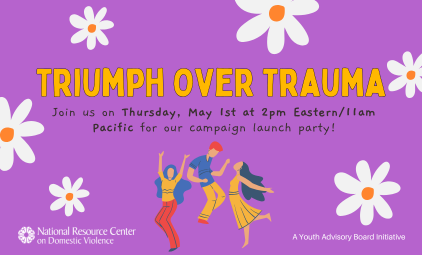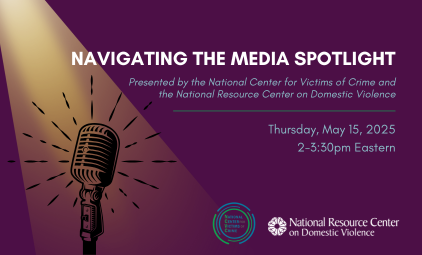by Casey Keene, Director of Prevention & Programs for the National Resource Center on Domestic Violence
I resisted therapy until I was well into full-fledged adulthood, at which point I had earned my masters degree in social work and felt qualified enough to engage others in the counseling and coaching process. What I didn’t know then was how powerful self-discovery can be to personal empowerment (the process of gaining control over one’s own life), and to the journey of healing and resilience.
It was the Enneagram. That was the model that my therapist drew upon for understanding how individuals’ basic motivations, driven by their hopes and fears, are connected to their unique personality types. The Enneagram explains how our “inborn orientation largely determines the ways in which we learn to adapt to our early childhood environment” and reveals how our life experiences uniquely impact our levels of personal health and well-being. Awareness of one’s own Enneagram type in relation to that of others in your personal sphere can help strengthen those relationships, as understanding others deepens and increases empathy and patience. Most importantly, the Enneagram reveals how each distinct personality type looks across a spectrum of health and well-being, showing us our potential to live as the best version of ourselves. The healthiest levels of development are described with terms such as liberation, psychological capacity, and social value. Using this tool, I could envision true happiness and satisfaction with myself – and I felt that I had the power to get there.
As my social work peers know fondly, client-centered and strengths-based are both concepts upon which our work is built. These two frameworks are also key components of our movement’s approach to addressing gender-based violence and other intersecting issues. Supporting survivors’ awareness of their strengths is critically important to the process of healing, resilience, and empowerment. Assisting survivors on their path to self-awareness, and tailoring services to support and enhance their identified strengths, are core building blocks of effective and responsible service and advocacy.
Self-assessment tools can easily be incorporated into our direct service approaches to domestic and sexual violence intervention. Below are three tools that can be used with survivors in community-based programs. These can be applied throughout the healing process.
Measuring Resilience
The Resilience Research Centre has developed a series of questionnaires that measure resilience capacity in individuals, including the three factors shown to promote resilience processes: internal abilities and skills, caring supportive relationships, and external sources of meaning, values, and faith. There are currently four versions of the Child & Youth Resilience Measure (CYRM), available in seven languages for children (aged 5-9), youth (aged 10-23), adults (aged 24 and older), and a Person Most Knowledgeable in a child’s life. While these assessments were developed for use in research, they have great application for direct service. This tool can help individuals realize the wealth of resources available to them on the path to resilience. It can help survivors realize their inherent ability to thrive despite the trauma they have experienced – to help them shift gears from deficit to growth.
Measuring Assets
Similarly, the Developmental Assets Profile (DAP) from the Search Institute measures young peoples’ internal strengths and external supports to influence their healthy development and success in school and life. The Developmental Assets framework identifies skills, experiences, relationships, and behaviors that contribute to youth’s health and well-being. It emphasizes the importance of developmental relationships and communities, which we know are critical building blocks to resilience and healing.
Measuring Strengths
I recently learned about the transformative work of Friendship Home, a community-based domestic violence program in Lincoln, Nebraska that embraces a strengths-centered advocacy model. Their model integrates positive psychology, empowerment-based services, and the Gallup Organization’s Clifton StrengthsFinder™ instrument. Through Friendship Home, adult survivors and their children are provided the opportunity to complete the StrengthsFinder assessment to identify their personal strengths. Services are tailored with a specific focus on supporting and enhancing each individual’s key strengths, and helping to build networks of resources around each survivor based on the assets they bring. This process begins with self-discovery, explores unique applications for each individual, and ultimately results in personal growth and evolution.
“When I got the results, I was astonished! It was like looking in the mirror for the first time and really seeing me. The first thing I thought was, this is me, this is really me! I cried with relief. Then I cried for another reason…because I clearly saw how my husband, the man who was supposed to love and encourage me, used my strengths against me…I see now that he was afraid that if I liked myself enough, I’d leave.” - Friendship Home Resident
Taking the time to really know oneself is critical to our efficacy as helpers. Self-awareness helps us to maximize our talents and strengths, evaluate the lens through which we see the world, feel greater control over our personal well-being, and deepen our relationships with others. For survivors, it also enhances our capacity for healing and resilience. Sometimes empowerment can be unlocked with a helpful look at one’s own reflection. It’s all a matter of using the right key.
How have you utilized self-assessment tools in your work with survivors?















